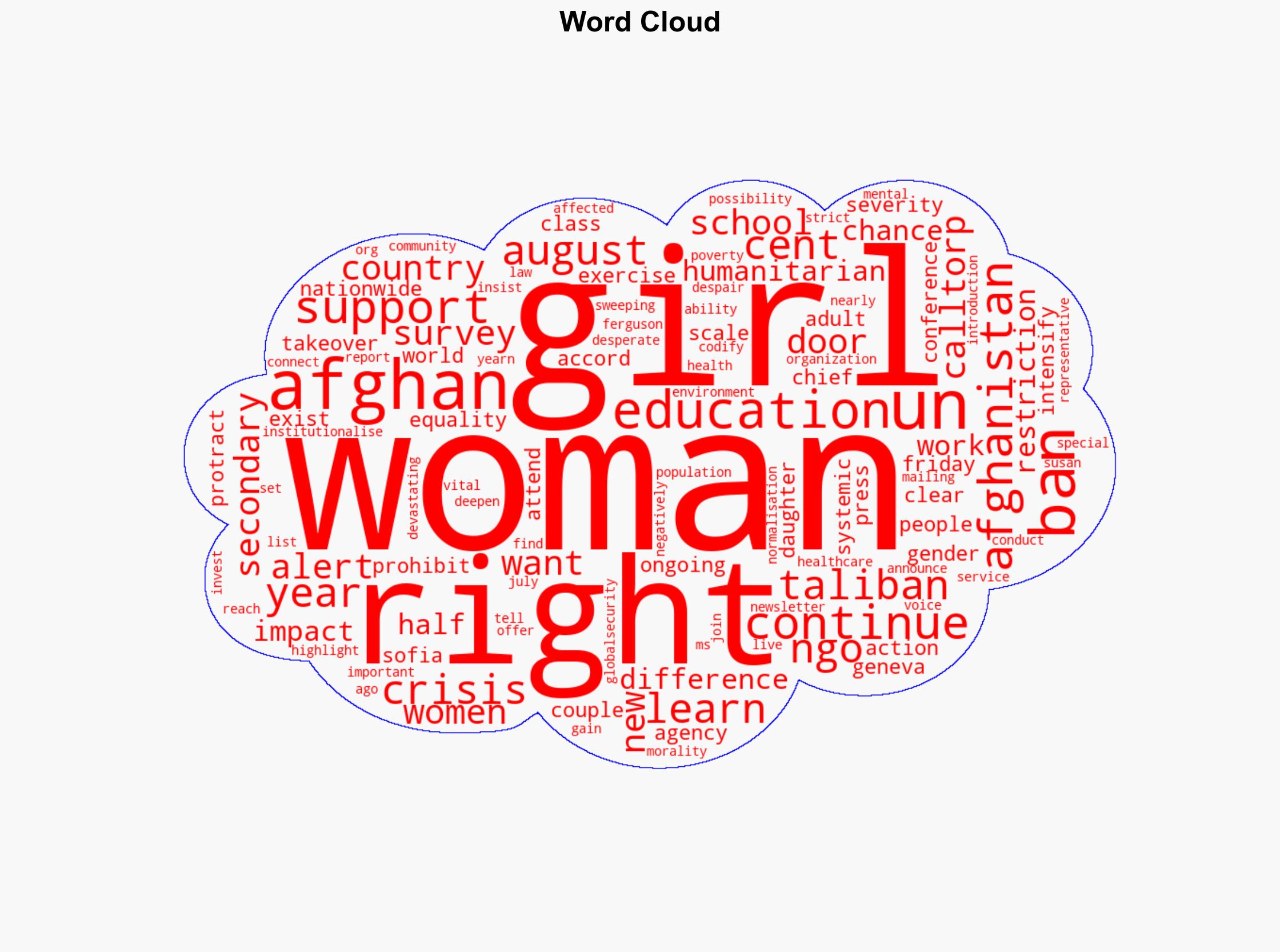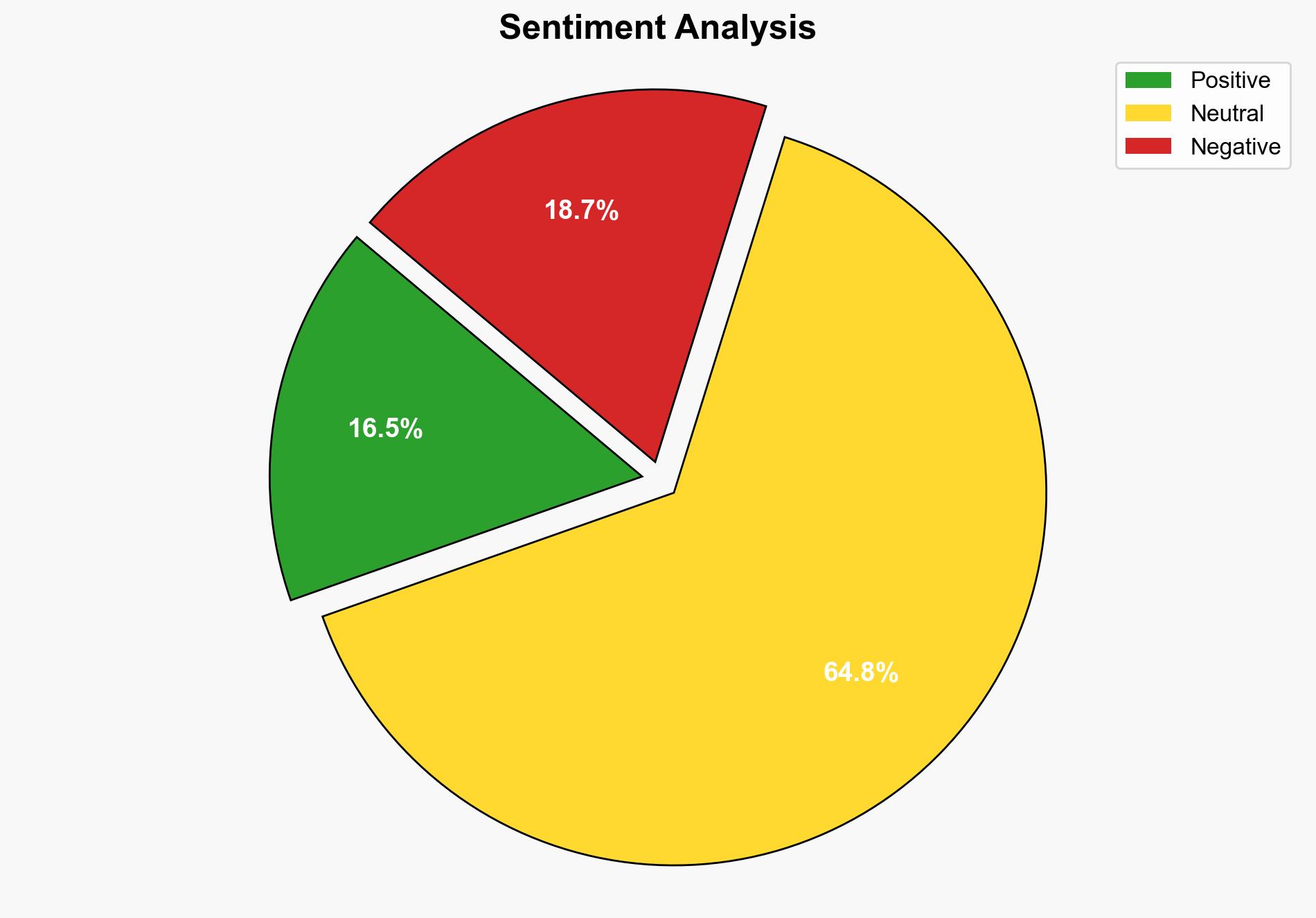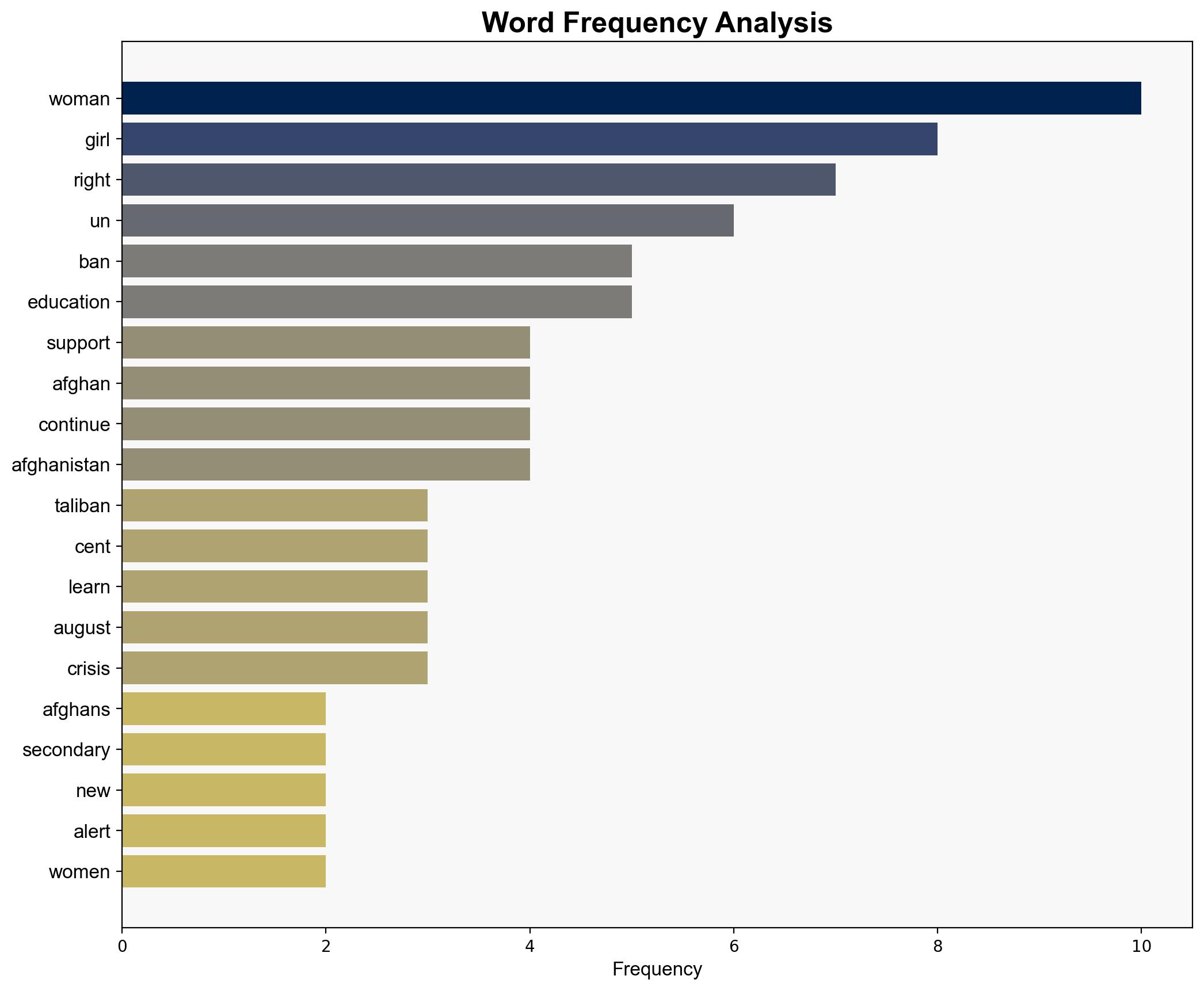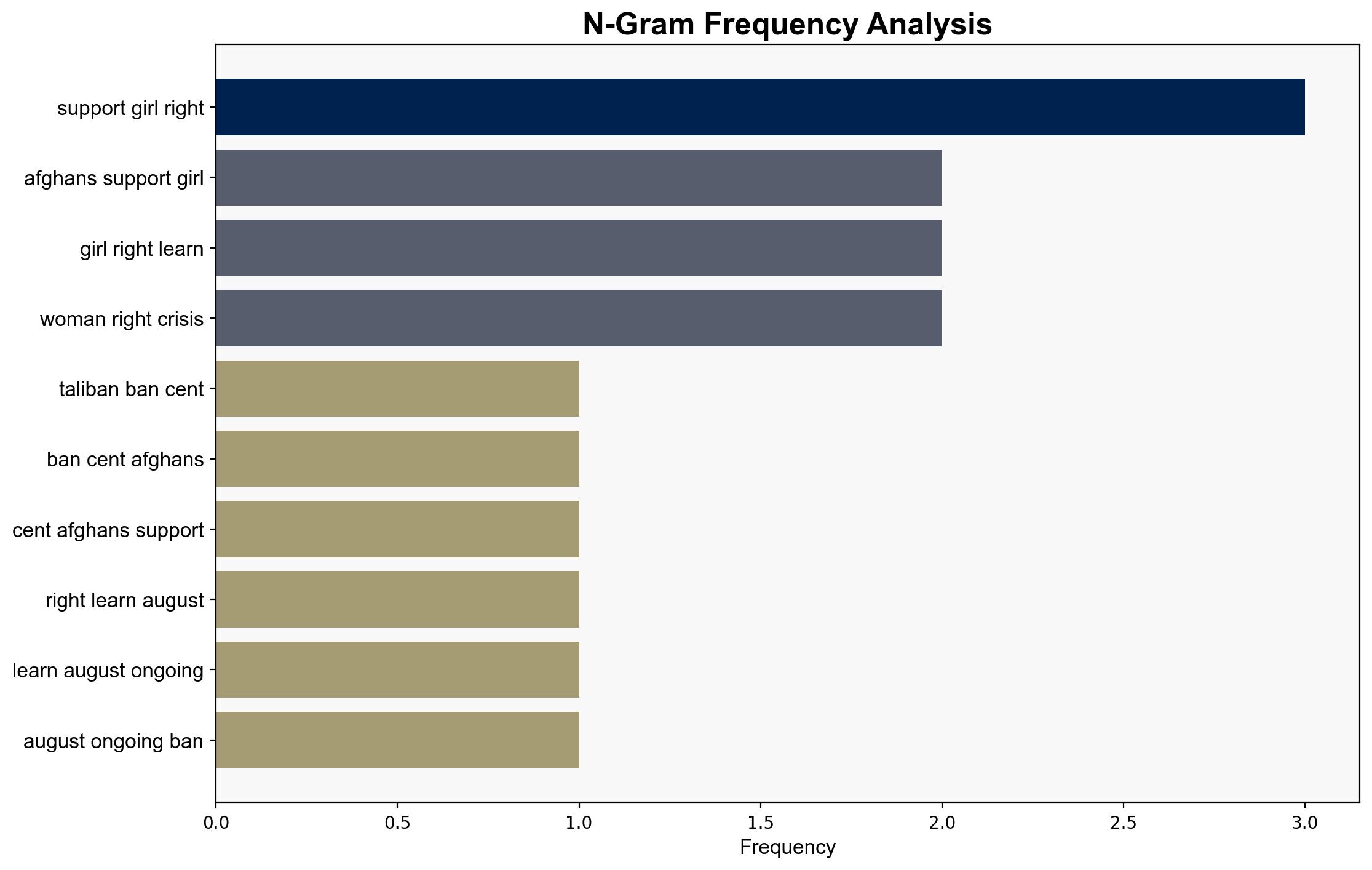Despite Taliban ban over 90 per cent of Afghans support girls’ right to learn – Globalsecurity.org
Published on: 2025-08-30
Intelligence Report: Despite Taliban ban over 90 per cent of Afghans support girls’ right to learn – Globalsecurity.org
1. BLUF (Bottom Line Up Front)
The intelligence suggests a strong public opposition to the Taliban’s educational restrictions, with over 90% of Afghans supporting girls’ right to education. The most supported hypothesis is that this widespread support could catalyze internal and external pressures on the Taliban to reconsider their policies. Confidence level: Moderate. Recommended action: Engage with international and regional stakeholders to amplify Afghan voices and apply diplomatic pressure on the Taliban.
2. Competing Hypotheses
Hypothesis 1: The high level of support for girls’ education among Afghans will lead to increased internal pressure on the Taliban, potentially resulting in policy changes or concessions.
Hypothesis 2: Despite public support, the Taliban will maintain their educational restrictions due to ideological commitments and control over the population, with minimal policy shifts.
Using ACH 2.0, Hypothesis 1 is moderately supported by the data indicating widespread public support. However, Hypothesis 2 remains plausible due to the Taliban’s historical rigidity and control mechanisms.
3. Key Assumptions and Red Flags
Assumptions: The survey accurately reflects public sentiment; the Taliban leadership is sensitive to public opinion.
Red Flags: Potential bias in survey methodology; lack of direct evidence linking public sentiment to policy change; possible underreporting of dissent due to fear of reprisal.
4. Implications and Strategic Risks
If Hypothesis 1 holds, there could be a gradual shift in Taliban policies, improving regional stability and international relations. However, if Hypothesis 2 prevails, continued restrictions may exacerbate humanitarian crises, increase regional instability, and fuel extremism. The economic impact of educational bans could further impoverish the population, increasing reliance on external aid.
5. Recommendations and Outlook
- Engage with regional partners to support Afghan civil society and amplify their demands for educational rights.
- Monitor Taliban communications for signs of policy shifts or internal dissent.
- Scenario Projections:
- Best Case: Taliban eases restrictions, leading to improved humanitarian conditions.
- Worst Case: Continued bans lead to increased radicalization and regional instability.
- Most Likely: Limited policy shifts with ongoing international pressure.
6. Key Individuals and Entities
Sofia Calltorp, Susan Ferguson
7. Thematic Tags
national security threats, regional focus, human rights, education policy, Afghanistan





